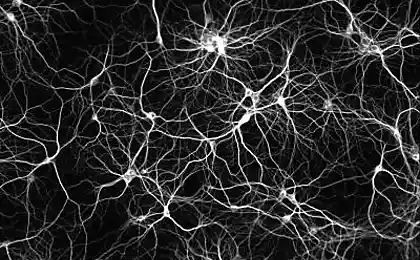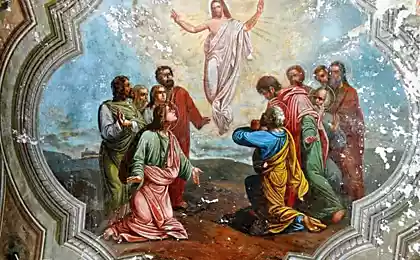1067
Day of Remembrance
Today the great comedians would have turned 90 years old.
Leonid Gaidai Iovich (1923 - 1993)
Leonid Gaidai - Russian film director and screenwriter. Movies: "Prisoner of the Caucasus", "The Diamond Arm", "Ivan Vasilievich" and others.
Leonid Gaidai was born January 30, 1923. His father - Job Gaidai - hailed from Poltava before the revolution served time in prison (he took the blame the other person). There he met a girl, the sister of another exile, and married her. In this marriage they were born three children, and last child (and as shown by the future, the most talented) was our hero - Leonid Gaidai. Although initially his biography evolved quite usual.
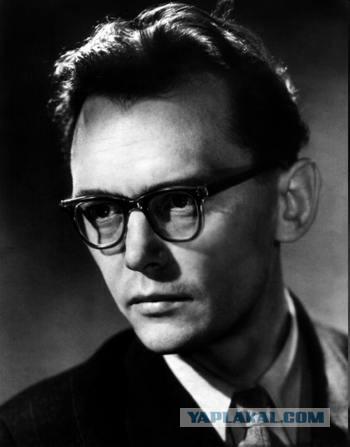
In 1941, Leonid Gaidai went to serve in the army and went to Mongolia. But soon the war began, and he was sent to the Kalinin Front. Since the school he taught German, he was determined to investigate. Having made several raids on the rear of the fascist, Leonid Gaidai sergeant during one of them hit a mine. He was given a second group of disability and komissovali cleaned. Thus ended, barely begun, the future military career comedy.
After the war Gaidai decided to go to the artists, although since childhood not reprimanding the letter "r" and "l". However, he was admitted to drama school at the Irkutsk Regional Drama Theatre, which he in 1947 successfully completed. Then, within a few years he played in local theater, and the role of trusted him not episodic. Gaidai, for example, played in the Salt "three sisters", Ivan Zemnukhova in "Young Guard", Vincenzo in "The Taming of the Shrew," Jacob Yasse in the "Conspiracy of the doomed" and other roles. But Irkutsk, apparently, was too small for talent Gaidai, and in 1949 he came to Moscow and entered VGIK the directing department.
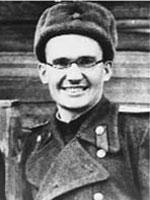
According to his former classmates, Leonid Gaidai already stood out for its Hochma. One day they came back with a friend in Ostankino and went on the territory of present VVC. Places there were deaf, and with them for the company stuck right young employee of the Institute of Cinematography. And when they had gone half way, Gaidai suddenly stopped and, turning to the girl, in a hollow voice said, "Come on, take off your coat!" She was confused, but Gaidai continued in the same vein: "What do you stand? Can you help? "And the girl has already started to unbutton when Gaidai with a friend suddenly laughed loudly.
However, the fun Gaidai not really like his teachers, and after the first six months of a future classic comedy was expelled from the institute as incompetent. Another would be in such a situation, lowered his hands, but Leonid Gaidai was not such a person. He began to walk on the tall cabinet and prove that he was expelled unjustly. In the end, he believed and took again on probation.
In 1955 he graduated from VGIK Gaidai. Was director-intern on the set comedy "Liang" (1955). The first film "The Long Road" (1956, with VI Nevzorov) he put on the Siberian stories Korolenko, thus paying tribute to its Far Eastern origin.
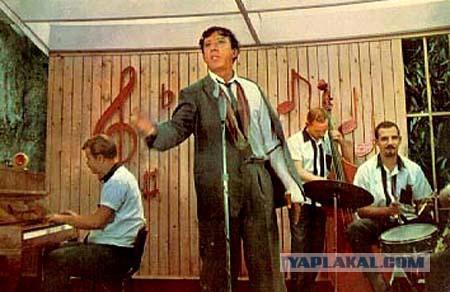
Leonid Gaidai turned to the genre of satirical comedy only in the next paper, "The bride from the world" (1958), which was subjected to strict censorship and as a result has been significantly reduced. The film "Three times the resurrected" (1960), decided in the genre of heroic kinopovesti with a clear ideological fervor, generally considered to be forced in the works Gaidai, who was still a stranger to politics now attributed to him in spite of dissident reasons. But importantly, that the action "Three times the Risen" first occurs during the Civil War, and for the director of the early 20th century (until 1930) would later become one of the most popular, judging by the screen versions of I. Ilf and Petrov ("12 chairs", 1971), Mikhail Bulgakov ("Ivan Vasilievich", 1973), M. M.Zoshchenko ("It can not be!", 1975). And in the above "long haul", as well as in the film "Business People" (1963, from the stories of O. Henry) and "For the matches" (1980, USSR, Finland, together with R. Orco by M. Lassila) events deployed around the same time. Interest in that stage, of course, linked in Gaidai even with his passion for early cinema.
In 1961 in the short film "Dog Mongrel and unusual cross" Leonid Gaidai like accidentally took the "adaptation" of the newspaper feuilleton Stepan Oleynik not to remain idle. But in the invisible transferring in time, the orientation of the satirical comedy-art 20-ies of both Soviet and American (Charlie Chaplin, Buster Keaton and Harold Lloyd) Gaidai found true Klondike. And even eccentric American comedy techniques he acquired a purely Russian and Soviet quite sound. This unpretentious short film also spawned a unique phenomenon of the three super popular heroes masks Soviet cinema - Goonies, Coward and Experienced, which then were used in the next short film "Bootleggers" (1962), the third novel comedy "Operation" Y "and other adventures Shurik" ( 1965) and "Caucasian captive" (1966). The two last named pictures and "The Diamond Arm" (1968), awarded the State Prize in 1970, form a kind of comedy trilogy of the 1960s. All these films are also the most cash - only 15 months of hire them looked 222, 8 million. Spectators, that is, almost the entire population
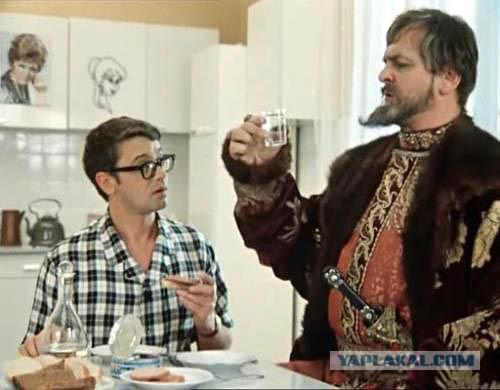
In general, the audience in the Soviet cinema in the films made by Leonid Gaidai (excluding re-rolled), about 600 million. People (for example, in Steven Spielberg's US audience was a half times less). That is, in a very rough estimates, could be a box office of $ 200 million. Rubles in prices until 1991. We can say that "The Diamond Arm" was at the very Gaidai. In America it would be during the life of a multimillionaire, we also lived modestly, like, say, Semen Semenovich Gorbunkov of "Brilliant hands". It is no coincidence that this is the comedy in 1995 in a survey of viewers RTR has been recognized as the best. This is the most cash, and perfect creation director logged along with GN Danelia in the first three Soviet comedians.
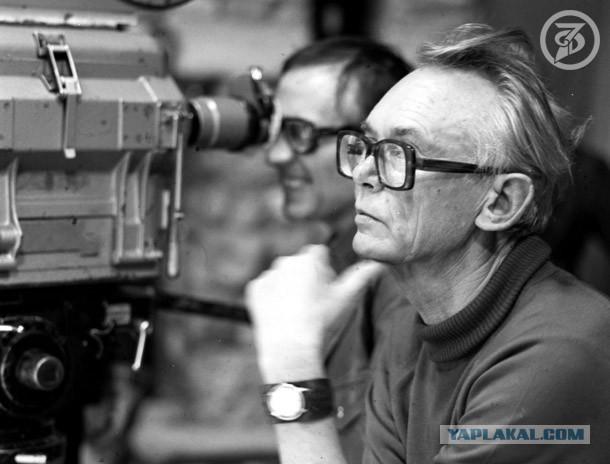
Gorbunkova role that is always ready to help out and help make a miracle, was entrusted to Yuri Nikulin. This duality carnival hero, policy statements and in his favorite song about hares, was a kind of going beyond the regulated social existence, the romantic parody manifestation of individual courage. So popular and always brings a lot of luck in the film distribution formula of "At Home Among Strangers" beaten at Gaidai with rare sarcasm and at the same time with a genuine sympathy for the little man who is forced to play no significant role peculiar to itself (this motive is not time used and Chaplin and Keaton, to whom Gaidai admired all his life).
And despite the fact that the director Leonid Gaidai sometimes he appeared in small roles on screen, his authentic self-portrait should be regarded as a nice Seeds Semenovich (and that's a real director's wife actress N. Grebeshkova played Gorbunkova spouse), naive, good-natured and heart "captive agent "forced to live on the" island of bad luck "and escape from despair, singing" And we do not care, but we do not care ... ". That's why "The Diamond Arm" - not only the funniest and clever, but also the most personal work Gaidai.
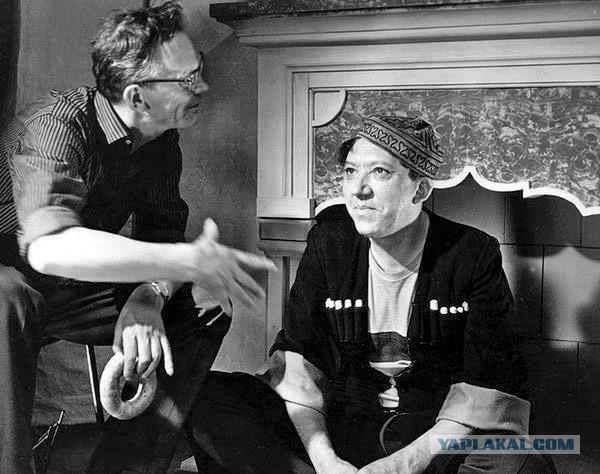
And it is his remarkable care in the stagnant 1970s away from modern themes and eccentric hobby adaptations literature of the past eventually led to the director's notorious failure in the case of treatment in "Incognito from St. Petersburg" (1978) to the "Inspector" NV Gogol. Subsequent already renovation jobs Gaidai: "Danger!" (1985), "Private Detective, or Operation" Cooperation "(1989) and" On Deribasovskaya good weather or on Brighton Beach Raining Again "(1992) - enabled him back to the present. However, in the changed situation gaydaevskaya former manner of combinations of tricks with satirical comedies charge action and badly written out the characters now wraps toothless in the social criticism of reality and only the outer comedic heroes. After the death of Leonid Gaidai began to rapidly (sometimes too rollicking) revaluation creative director, belatedly recognized as the undisputed classic, unique and eccentric master of the Soviet satirical comedy.
Taken: http: //www.k1no.ru/gaiday.htm
Leonid Gaidai died November 19, 1993 during a holiday in Israel.
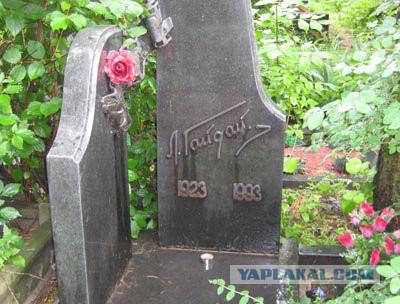
Source:
Leonid Gaidai Iovich (1923 - 1993)
Leonid Gaidai - Russian film director and screenwriter. Movies: "Prisoner of the Caucasus", "The Diamond Arm", "Ivan Vasilievich" and others.
Leonid Gaidai was born January 30, 1923. His father - Job Gaidai - hailed from Poltava before the revolution served time in prison (he took the blame the other person). There he met a girl, the sister of another exile, and married her. In this marriage they were born three children, and last child (and as shown by the future, the most talented) was our hero - Leonid Gaidai. Although initially his biography evolved quite usual.

In 1941, Leonid Gaidai went to serve in the army and went to Mongolia. But soon the war began, and he was sent to the Kalinin Front. Since the school he taught German, he was determined to investigate. Having made several raids on the rear of the fascist, Leonid Gaidai sergeant during one of them hit a mine. He was given a second group of disability and komissovali cleaned. Thus ended, barely begun, the future military career comedy.
After the war Gaidai decided to go to the artists, although since childhood not reprimanding the letter "r" and "l". However, he was admitted to drama school at the Irkutsk Regional Drama Theatre, which he in 1947 successfully completed. Then, within a few years he played in local theater, and the role of trusted him not episodic. Gaidai, for example, played in the Salt "three sisters", Ivan Zemnukhova in "Young Guard", Vincenzo in "The Taming of the Shrew," Jacob Yasse in the "Conspiracy of the doomed" and other roles. But Irkutsk, apparently, was too small for talent Gaidai, and in 1949 he came to Moscow and entered VGIK the directing department.

According to his former classmates, Leonid Gaidai already stood out for its Hochma. One day they came back with a friend in Ostankino and went on the territory of present VVC. Places there were deaf, and with them for the company stuck right young employee of the Institute of Cinematography. And when they had gone half way, Gaidai suddenly stopped and, turning to the girl, in a hollow voice said, "Come on, take off your coat!" She was confused, but Gaidai continued in the same vein: "What do you stand? Can you help? "And the girl has already started to unbutton when Gaidai with a friend suddenly laughed loudly.
However, the fun Gaidai not really like his teachers, and after the first six months of a future classic comedy was expelled from the institute as incompetent. Another would be in such a situation, lowered his hands, but Leonid Gaidai was not such a person. He began to walk on the tall cabinet and prove that he was expelled unjustly. In the end, he believed and took again on probation.
In 1955 he graduated from VGIK Gaidai. Was director-intern on the set comedy "Liang" (1955). The first film "The Long Road" (1956, with VI Nevzorov) he put on the Siberian stories Korolenko, thus paying tribute to its Far Eastern origin.

Leonid Gaidai turned to the genre of satirical comedy only in the next paper, "The bride from the world" (1958), which was subjected to strict censorship and as a result has been significantly reduced. The film "Three times the resurrected" (1960), decided in the genre of heroic kinopovesti with a clear ideological fervor, generally considered to be forced in the works Gaidai, who was still a stranger to politics now attributed to him in spite of dissident reasons. But importantly, that the action "Three times the Risen" first occurs during the Civil War, and for the director of the early 20th century (until 1930) would later become one of the most popular, judging by the screen versions of I. Ilf and Petrov ("12 chairs", 1971), Mikhail Bulgakov ("Ivan Vasilievich", 1973), M. M.Zoshchenko ("It can not be!", 1975). And in the above "long haul", as well as in the film "Business People" (1963, from the stories of O. Henry) and "For the matches" (1980, USSR, Finland, together with R. Orco by M. Lassila) events deployed around the same time. Interest in that stage, of course, linked in Gaidai even with his passion for early cinema.
In 1961 in the short film "Dog Mongrel and unusual cross" Leonid Gaidai like accidentally took the "adaptation" of the newspaper feuilleton Stepan Oleynik not to remain idle. But in the invisible transferring in time, the orientation of the satirical comedy-art 20-ies of both Soviet and American (Charlie Chaplin, Buster Keaton and Harold Lloyd) Gaidai found true Klondike. And even eccentric American comedy techniques he acquired a purely Russian and Soviet quite sound. This unpretentious short film also spawned a unique phenomenon of the three super popular heroes masks Soviet cinema - Goonies, Coward and Experienced, which then were used in the next short film "Bootleggers" (1962), the third novel comedy "Operation" Y "and other adventures Shurik" ( 1965) and "Caucasian captive" (1966). The two last named pictures and "The Diamond Arm" (1968), awarded the State Prize in 1970, form a kind of comedy trilogy of the 1960s. All these films are also the most cash - only 15 months of hire them looked 222, 8 million. Spectators, that is, almost the entire population

In general, the audience in the Soviet cinema in the films made by Leonid Gaidai (excluding re-rolled), about 600 million. People (for example, in Steven Spielberg's US audience was a half times less). That is, in a very rough estimates, could be a box office of $ 200 million. Rubles in prices until 1991. We can say that "The Diamond Arm" was at the very Gaidai. In America it would be during the life of a multimillionaire, we also lived modestly, like, say, Semen Semenovich Gorbunkov of "Brilliant hands". It is no coincidence that this is the comedy in 1995 in a survey of viewers RTR has been recognized as the best. This is the most cash, and perfect creation director logged along with GN Danelia in the first three Soviet comedians.

Gorbunkova role that is always ready to help out and help make a miracle, was entrusted to Yuri Nikulin. This duality carnival hero, policy statements and in his favorite song about hares, was a kind of going beyond the regulated social existence, the romantic parody manifestation of individual courage. So popular and always brings a lot of luck in the film distribution formula of "At Home Among Strangers" beaten at Gaidai with rare sarcasm and at the same time with a genuine sympathy for the little man who is forced to play no significant role peculiar to itself (this motive is not time used and Chaplin and Keaton, to whom Gaidai admired all his life).
And despite the fact that the director Leonid Gaidai sometimes he appeared in small roles on screen, his authentic self-portrait should be regarded as a nice Seeds Semenovich (and that's a real director's wife actress N. Grebeshkova played Gorbunkova spouse), naive, good-natured and heart "captive agent "forced to live on the" island of bad luck "and escape from despair, singing" And we do not care, but we do not care ... ". That's why "The Diamond Arm" - not only the funniest and clever, but also the most personal work Gaidai.

And it is his remarkable care in the stagnant 1970s away from modern themes and eccentric hobby adaptations literature of the past eventually led to the director's notorious failure in the case of treatment in "Incognito from St. Petersburg" (1978) to the "Inspector" NV Gogol. Subsequent already renovation jobs Gaidai: "Danger!" (1985), "Private Detective, or Operation" Cooperation "(1989) and" On Deribasovskaya good weather or on Brighton Beach Raining Again "(1992) - enabled him back to the present. However, in the changed situation gaydaevskaya former manner of combinations of tricks with satirical comedies charge action and badly written out the characters now wraps toothless in the social criticism of reality and only the outer comedic heroes. After the death of Leonid Gaidai began to rapidly (sometimes too rollicking) revaluation creative director, belatedly recognized as the undisputed classic, unique and eccentric master of the Soviet satirical comedy.
Taken: http: //www.k1no.ru/gaiday.htm
Leonid Gaidai died November 19, 1993 during a holiday in Israel.

Source:


